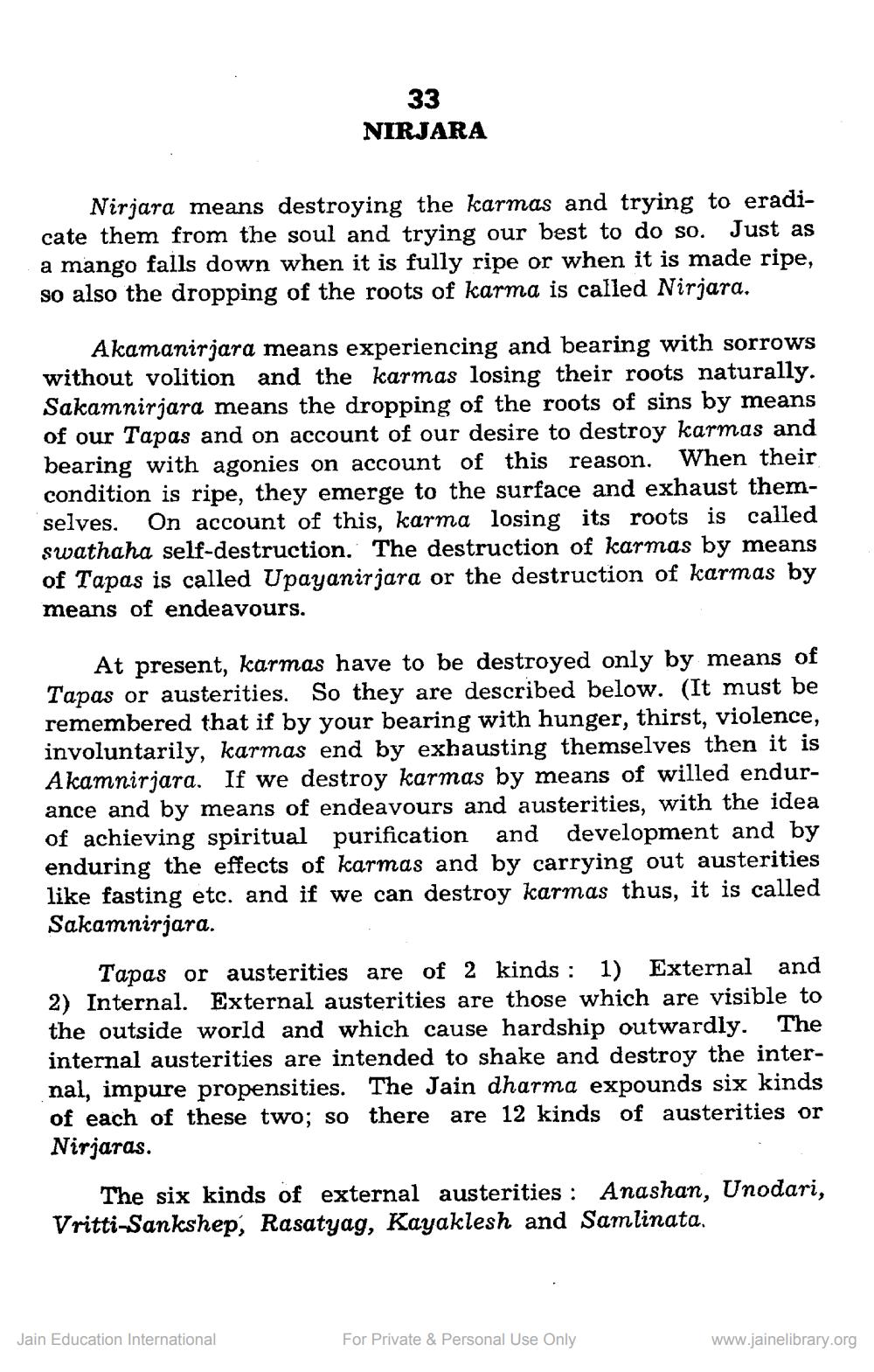________________
33 NIRJARA
Nirjara means destroying the karmas and trying to eradiJust as cate them from the soul and trying our best to do so. a mango falls down when it is fully ripe or when it is made ripe, so also the dropping of the roots of karma is called Nirjara.
Akamanirjara means experiencing and bearing with sorrows without volition and the karmas losing their roots naturally. Sakamnirjara means the dropping of the roots of sins by means of our Tapas and on account of our desire to destroy karmas and When their bearing with agonies on account of this reason. condition is ripe, they emerge to the surface and exhaust themselves. On account of this, karma losing its roots is called swathaha self-destruction. The destruction of karmas by means of Tapas is called Upayanirjara or the destruction of karmas by means of endeavours.
At present, karmas have to be destroyed only by means of Tapas or austerities. So they are described below. (It must be remembered that if by your bearing with hunger, thirst, violence, involuntarily, karmas end by exhausting themselves then it is Akamnirjara. If we destroy karmas by means of willed endurance and by means of endeavours and austerities, with the idea of achieving spiritual purification and development and by enduring the effects of karmas and by carrying out austerities like fasting etc. and if we can destroy karmas thus, it is called Sakamnirjara.
and Tapas or austerities are of 2 kinds: 1) External 2) Internal. External austerities are those which are visible to the outside world and which cause hardship outwardly. The internal austerities are intended to shake and destroy the internal, impure propensities. The Jain dharma expounds six kinds of each of these two; so there are 12 kinds of austerities or Nirjaras.
The six kinds of external austerities: Anashan, Unodari, Vritti-Sankshep, Rasatyag, Kayaklesh and Samlinata.
Jain Education International
For Private & Personal Use Only
www.jainelibrary.org




